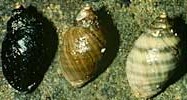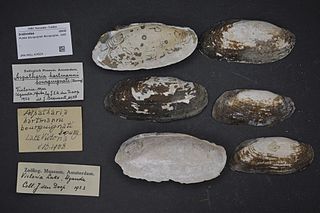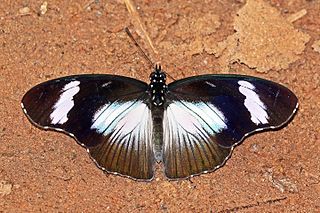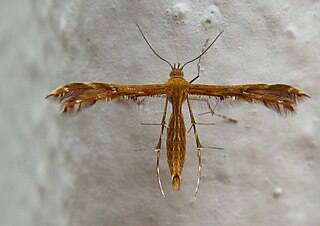
Wahlberg's eagle is a bird of prey that is native to sub-Saharan Africa, where it is a seasonal migrant in the woodlands and savannas. It is named after the Swedish naturalist Johan August Wahlberg. Like all eagles, it belongs to the family Accipitridae.

Nucella, common name dog whelks or dog winkles, is a genus of small to medium-sized predatory sea snails, marine gastropod mollusks in the subfamily Ocenebrinae which is part of the large family Muricidae, the murex snails or rock snails.

Johan August Wahlberg was a Swedish naturalist and explorer. Wahlberg started studying chemistry at the University of Uppsala in 1829, and later forestry, agronomy and natural science, graduating from the Swedish Forestry Institute in 1834. In 1832 he joined Professor Carl Henrik Boheman, a famous entomologist, on a collecting trip to Norway. In 1833 and 1834 he travelled in Sweden and Germany on forestry research projects. He joined the Office of Land Survey and was appointed an engineer in 1836, becoming an instructor at the Swedish Land Survey College.

The genus Hieraaetus, sometimes known as hawk-eagles, denotes a group of smallish eagles usually placed in the accipitrid subfamilies Buteoninae or Aquilinae.

Epomophorus is a genus of bat in the family Pteropodidae. They have a distribution throughout Africa.

Wahlberg's epauletted fruit bat is a species of megabat in the family Pteropodidae. It is commonly found across southern Africa.

Iridinidae is a family of medium-sized freshwater mussels, aquatic bivalve mollusks in the order Unionida.
Kabafita Forest Park is a forest park in the Gambia. Established on January 1, 1954, it covers 243 hectares.
Nucella wahlbergi is a species of sea snail, a marine gastropod mollusk in the family Muricidae, the murex snails or rock snails.
Stenodacma pyrrhodes is a moth of the family Pterophoridae. It has a wide range and has been recorded from Australia, India, Japan, South Africa, China, Nepal, Pakistan, Sri Lanka, Vietnam, Thailand and Korea. The species was first described by Edward Meyrick in 1889.

Hypolimnas anthedon, the variable eggfly or variable diadem, is a species of Hypolimnas butterfly found in southern Africa. There are four known subspecies, but it is very variable species with many morphs.

Stenodacma wahlbergi is a moth of the family Pterophoridae described by Philipp Christoph Zeller in 1851. It is known from Japan, China, Saudi Arabia, Iran, Sri Lanka, India, Central, East and South Africa, St. Helena, Mauritius, the Seychelles and Rodriguez Island. It has recently been recorded from Vietnam. Records for Australia were based on synonymisation with Stenodacma pyrrhodes.

Pterophorus is a genus of moths in the family Pterophoridae.

Stenodacma is a genus of moths in the family Pterophoridae.

Ceromitia wahlbergi is a species of moth of the family Adelidae. It is known from South Africa.
Megachile wahlbergi is a species of bee in the family Megachilidae. It was described by Friese in 1901.

Carlisis wahlbergi aka the Gardenia twig wilter is a Central and Southern African species of Coreidae in the order Hemiptera. The species was first described by Carl Stål, the Swedish authority on Hemiptera, and based on a specimen collected by the Swedish naturalist Johan August Wahlberg at Lake Ngami in Bechuanaland.

Panaspis wahlbergi, also known commonly as the Angolan snake-eyed skink, the savannah lidless skink, and Wahlberg's snake-eyed skink, is a species of lizard in the family Scincidae. The species is indigenous to Sub-Saharan Africa.












